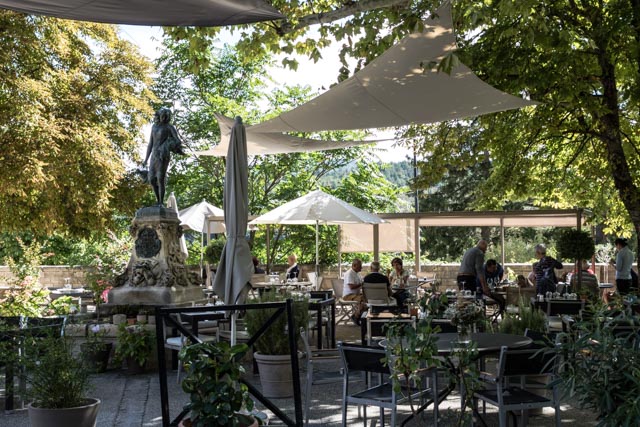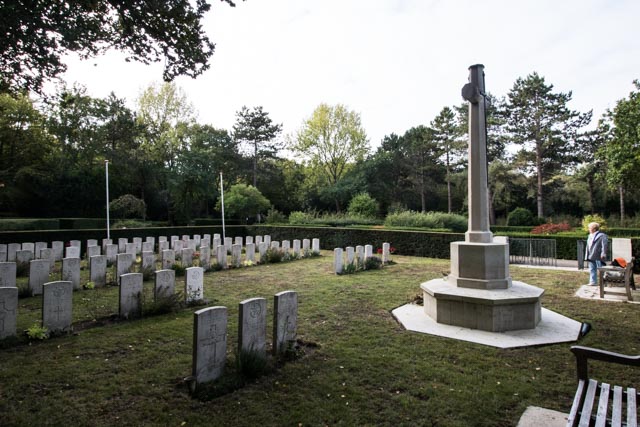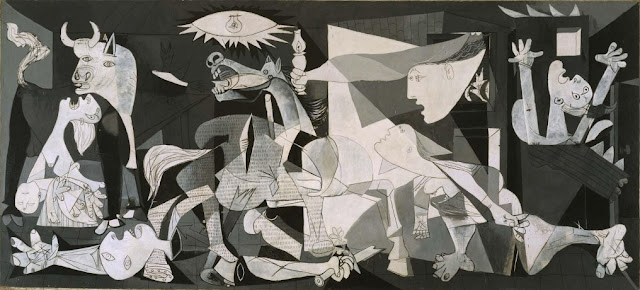In the last few years my holidays abroad have been restricted in scope mainly for medical reasons, meaning the same or similar regions have been visited more often. In the past I rarely re-visited destinations as I always wanted to see “what else was out there” but that is now behind me. What that restriction has done though is to let me see an alteration in attitudes from the general population you would not get from a one-off visit. I can assure you I do not go looking for any of this as a holiday is just that, but simply meeting people gives an insight into their thinking and as here in the UK, there has undoubtedly been a shift away from the status quo, and not just from the low paid but across the board. No, I didn’t conduct a survey; the numbers were small but rather like those who work in the NHS who a few years ago would neither speak ill of it or malign it in any way, all has changed. My French is limited so the nuances of what was said may have been misinterpreted but I don’t think I was far out in my assumptions.
What little television I saw was restricted to the news and the inevitable and endless discussion programs on French TV , as the latest Brexit cock-up (or deliberate move, who knows any more) from our own PM was headline news. The ramifications were discussed by numerous talking heads from the press and institutions; as here, almost all are pro-EU and the sneering condescending tone was very to the fore in all these affairs. Only one I saw understood the nonsense going on in our country and he was the London-based correspondent of one of the TV companies who could understand the dilemma our political elite had created. As I say, the subtleties eluded me but the gist was obvious and as here, the commentators displayed an "us and them attitude", with them always right.
Several people I met asked about Brexit and some admitted they wished France would leave. They are fed up with self-serving politicians as well as the rest of Europe. The hotel owner where we stayed summed it up: “The last President we had that cared for the people and the country was De Gaulle!” Not much different from here, then.
But that was all a small part of a successful trip. Doing another at my age as the sole driver is maybe too much now: what was a walk in the park thirty years ago is no longer easy, even with vastly superior road networks - Rotterdam for instance must have more multi-lane highways, bridges, tunnels and junctions than the whole of the UK in one town; how far we have fallen behind with infrastructure.
On the other hand some things don’t change. I have never got my head round why so many French hotels have bathrooms from the 19th century. If they worked one could forgive, but they don’t and are clapped out and often broken or leak or have poor lighting and /or have toilets that don’t fit in the space provided so you have to sit on them sideways. Sometimes you yearn for a Premier Inn.
Other things are changing in France with the near-demise of Les Routiers: the good cheap fare available almost everywhere on all the old A roads is disappearing with them. You can still eat well in France - and certainly better than anywhere outside London - yet little by little establishments are closing. It is all relative of course, as some cities in the UK struggle to provide almost any worthwhile eateries, but the change is happening.
Along with the food the wine has become more expensive. The days of the merely 50-100% mark-up on restaurant wine lists has all but vanished: the lists look much like those at home now, at the three-times-and-more area. The falling exchange value of the pound distorts to a degree but the fact remains.
This will be almost certainly my last road trip. Having to do all the driving, advancing years have all taken their toll, I just find it too tiring and stressful for something that would have been a breeze a few years back. If I make a mistake on the roads over there now I dwell on it; before, I would have just got on with it. We all make mistakes when driving on the right (despite the constant reminders from the other front seat !), not many but one can be enough. There also are a lot more strange road layouts being used, none more striking than those on our way back to the ferry in Holland, many of which exceed anything we have at home. Rotterdam's road network matches its port: enormous, dwarfing anything in the UK.
We had a satnav roadworks moment on the way to the port. We couldn't take the standard route, owing to multiple road closures for road works, but the satnav would keep directing us back to the same spot. In moments like that it is best to turn the thing off, head in the general direction that you believe is correct and turn it on again well past the closures. Then, of course, it starts afresh.
It was on one of these detours that we entered a glasshouse and shipping area for the growers. I used to buy from several Dutch firms when I was working, though I had never visited before. As with the rest of Rotterdam, the giant scale of the enterprise is a sight for the eyes. There are some big glasshouses in Lincolnshire and the new one off in Thanet is huge, but they would not even form an annex to the ones here: on Google Earth they can be seen covering endless acres of ground, with distribution centres next door like the ones that the big supermarkets have.
Back in the South the trip went well for us. We got the second summer with temperatures up to 33℃ and outdoor dining was the norm. The grape harvest was starting or finishing, depending on the grape, and the roads were clogged with small tractors lugging their loads of grapes back to the winery - always a comforting sight as a prelude to the delights to come.
Some vineyards are picking weeks earlier this year because of the weather and this has been a trend for some time. The rise in temperatures could be good news for more northern vineyards including those in Britain - as long as there is some land left after TM has concreted over everything to accommodate the never-ending flood of new arrivals to this country.
"Revenons à nos moutons.": it was very noticeable just how much Mt Ventoux dominates the landscape in this part of France. Wherever you go the summit peeks through gaps with its weather station, often with a trail of cloud created by the constant high winds; a horrible, desolate place and after seeing and paying respects at Tom Simpson's memorial a couple of years back I had no desire to repeat the exercise.
I had to restrict my vineyard visits because it would not have been a holiday. As the wife says, standing in damp caves lost its appeal a long time ago: they are all the same and the story they tell doesn’t change either. Much as I like visiting the wineries she has a point, so a planned and selective choice was made that was acceptable to the other half and all was well.
On the subject of buying direct from the wineries: you have to know your stuff. Unless it is a wine that is unobtainable in the UK you will be paying more for it than you would at home - though this was confounded by the wineries we visited in the Alsace, where it was cheaper; all very odd.
If I had my way, visiting supermarkets would be off the agenda of any holiday, but needs must, and we had to service the the front seat passenger's continual need for hydration, so our only large scale visit was for water, small bottles and lots of them ! We went to the retail parc outside of Avignon to an Auchan that needed one of those tourist trains to get around it. I have never seen such an enormous retail outlet and in fact didn’t see a large proportion of it as it was simply too far to walk to find out what was at the other end (probably Nirvana.) Exiting the place was an adventure as a sudden appearance of the Mistral made getting back to the car a 45-degree-lean experience with hair to match.
 |
| Gigondas |
Of all the villages we visited - and there are plenty - one or two stood out. Gordes is spectacular, climbing up a steep hill overlooking a plain, but is chock full of tourists. Nearby Rousillon is better but not much. For me, others took the prize: Gigondas, a wine village, is gorgeous, has good eateries, lots of excellent wine outlets from all the major producers and fabulous views from the church at the top; the medieval village of Seguret, down the road from Gigondas, is a bit of a hike in but worth it. The list is endless. We also greatly enjoyed Entrechaux; and a peaceful gem near Sault, Monieux, that also has a very good indoor and outdoor restaurant: Les Lavandes, one of the discoveries of the trip.
 |
| Les Lavandes Restaurant, Monieux |
For all oenophiles Chateau Neuf de Pape is a must. It is full of outlets from all the famous producers, has some decent eateries and a castle, worth a visit but crowded and lacking the charm of the numerous other villages. For scenery the Dentilles de Montmirail are breathtakingly beautiful; the road out of Beaumes- de-Venise will lead to several options, all good, and the gorges of the river Nesque are impressive, no Tarn or Ardeche but still worth the journey through them.
 |
| A village in the Dentilles |
The other place that was a miss to me despite everyone giving the place glowing reports was L’isle-sur-la-Sorgue, I have never heard a bad word said about the place and indeed some parts are very pretty: it is known as the Venice of Provence - a bit over the top but the river runs straight through the middle of the place and is attractive where they have taken advantage of the waterside. But the main east-west road runs right through the town as well and is very busy, the place is full of mainly crappy brocante /flea markets and antique shops and heaves with people most of whom seem to be wanting to cross the awful road. This may well have been a desirable destination some years back but now ?
So the time came to move on. To break the journey for the old fella we booked three nights in Kientzheim to the west of Colmar in the Alsace, another place we have previously visited and enjoyed. This is Rhineland and has been German, French and back again several times over the centuries and going by the names and script used you could be forgiven for thinking it was German again but it isn’t.
 | ||
A canal in Colmar
|
There were only a couple of days to spend in the Alsace. Having been there more than once before, we didn't waste time as we knew where we going for a change. A day in Colmar was justified: a lovely city, great restaurants, bars, shops and a superb indoor market with a cafe that always seems to have interesting people in there - why this should be I have no idea but the oddballs, travellers etc all seem to congregate there. We ended up speaking to a young bright American girl travelling alone in Europe, not for the first time she told us, but more cautious as to where she goes now. The late News of the World motto “all human life is here” would have applied exactly to this cafe, with customers ranging from hookers to street cleaners and suited business men and more, all in this rather cramped corner; the coffee is good too!
Outside, the street market is, like so many in France, food-orientated, with stalls selling produce from small farms - small producers of charcuterie, cheeses, great blocks of nougat, jams and honeys from artisans and more. I have always felt that if these places disappear from the likes of France, Italy and Spain the West will go with them.
On the second day I did manage to squeeze in two wineries as I wanted some bottles of Pinot Gris (known elsewhere as Pinot Grigio.) It is one of the delights in white wine and reaches great heights here It should never be confused with your supermarket Pinot Grigio, yet despite its quality it is not easy to come by in the UK so my excuse for a couple of detours was approved, just ! The two wineries visited were Domaines Schlumberger and Trimbach; nothing very French in those names. I got what I wanted and that was the end of my wine-buying and after a look round the defence walls of Kientzheim and a while watching the grape harvest come in it was time for a quick nap and our last dinner in the Alsace.
On a technical note, the big increase in the use of mechanical grape-picking machines was very noticeable. There was push-back against their use in the beginning but given the flat lands and the vast vineyards that cover those areas there must be a huge time saving and of course cost saving as well. For the better vineyards and the steeper slopes they are not practical and hand-picking will always (?) be the norm in those vineyards. Fascinating machines though, and straddling the vines with their stilts they look as though they have come from the film set of War of the Worlds.
I was not looking forward to the final big drive up the Hague as the traffic gets denser the nearer you get to the port, and it did indeed get very busy a long way out. Also with about 60-70 miles to go it started to rain, the first real clouds we had seen on this trip and a chance to clear a by now dirty piece of glass with the aid of the screen wash. As at the beginning of this story the sat nav worked overtime when we finally got to the Hague, as you never go direct to anywhere and the constant "turn left, take the next exit" went on for what seemed like hours before we were reached our final stopover: a sort of Premier Inn but it was central, not far, in a straight line from the port and our final diversion the following morning.
One final ablutions story of note: the Dutch hotel had a total loss (plugless) basin in the bathroom. Simply what is the point? They are useless as a basin and the water goes straight down the plughole (or a long slot at the back of the basin in this case.) But they do have a sense of humour: on the mirror above the basin was a sticker claiming their eco credentials about saving water…
Our ferry home was at 14.00 giving me time to fulfil a promise I made some considerable time ago to visit the grave of my uncle, my father's brother, who was killed in the Hague in September ‘44 and is buried there.To my knowledge none of us has visited this foreign field since the late forties and having researched his war record I felt that that if possible a visit would be appropriate. (I had planned it for two years ago but the trip was abandoned when I was taken into hospital a week or so before.)
 |
| Westduin Cemetery, The Hague, Netherlands |
He was one of a rare breed, a fighter pilot who survived at least until ‘44, serving in 3 Squadron flying Hurricane Mk IICs at the beginning of the war, being posted to the Middle East and becoming a specialist in ground attack, then returning to lead 3 Squadron, flying Hawker Tempests out of a grass field in Kent near Lydd.
The reports that I garnered for that fateful day vary. It is not unusual to have slightly conflicting versions under war conditions but in essence they were on a seek and destroy mission looking for the mobile V1 and V2 sites that were hidden along that part of the Dutch coast after the D day landings. They spotted what is believed to be a ramp going up for a V2 and he led the attack. Sadly the resultant explosion took him and his aircraft with it and very nearly his wingman, and that was that.
It has to be mentioned that aircrew losses during that invasion period were horrendous: the Squadron lost three Leaders including my uncle in four months. It was not a good time.
We found the cemetery after another round-the-houses trip that lasted 35 minutes rather than the ten depicted on the map. The cemetery is a civil one with just a small section divided off and cared for by the CWGC: immaculate as usual and just the seventy souls buried there, mostly RAF aircrew. As usual when reading the inscriptions, the age of these boys hits you: pilots of 20 years old - it does not seem possible but it is and this is what war takes from us, the cream of a generation.
Like many others who have visited war graves, thinking about what they fought for and current times I wondered what the hell the current crop of politicians of all colours in most Western nations is playing at. Was it all in vain? At moments like this you cannot help but feel it is going that way and nothing will stop it. What of course is never admitted or discussed is that without us and the Allies and the appalling loss of life there would be no Europe to squabble over. Still we paid our respects and left. It was a fitting end to a successful holiday.
Of course the trip to the ferry had a twist in the tail as the direct route was closed and so were several adjoining roads, meaning that after the satnav sent us round and back to the original no through road I had to shut it off and go in the general direction of the port and then start it again, where it found a new route, that was that then; well, no, as it directed us to the truck entrance which is over a mile away from the car entrance. We were not alone: other cars arrived and circled, not knowing where to go next as there was no signposting to the other entrance. We did make it after stopping in a garage and asking (thank God the majority of Dutch speak good English), and we found the correct entrance.
It appears that a large number of drivers had the same problem: one said he believed he had toured the Hague in full as his satnav insisted he went completely in the wrong direction. Really the ferry company must be aware of the problem and a few well-placed signs at the lorry end where everyone is seemingly directed would solve the problem; and perhaps the reliance on satellite navigation should be tempered, and decent maps carried as well - the big road map was no use in this situation.
There followed an uneventful ferry crossing to Harwich and then onto country lanes (which would be motorways in any other country) from the port and home in the dark to a nice cup of tea. The emptying of the car laden with cases of wine and bags of clothes needing washing would wait till morning; too tired for all that, late at night.








